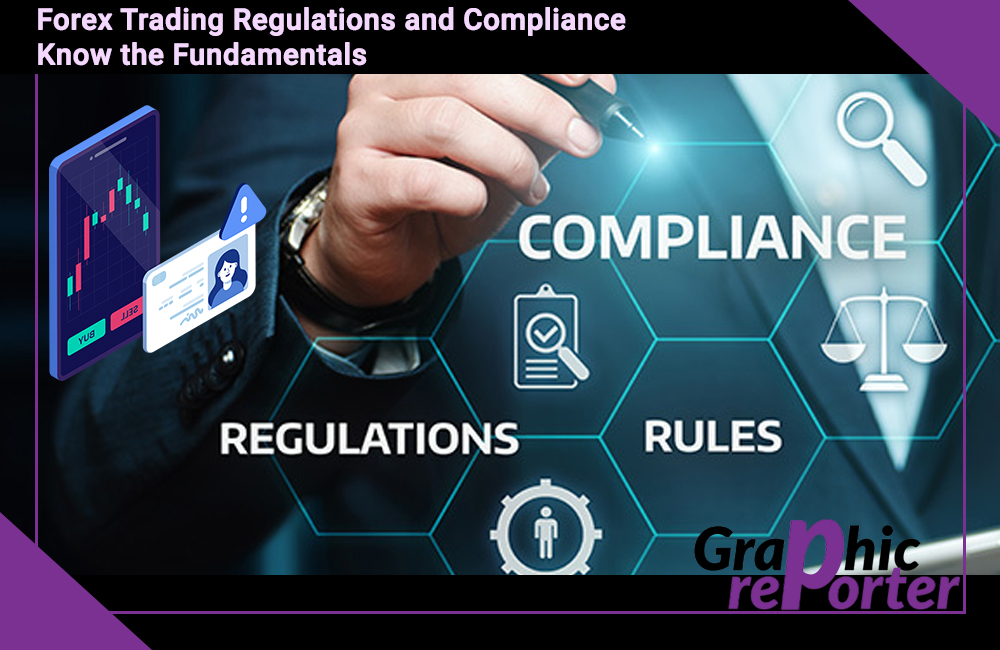Forex Trading Regulations and Compliance – Know the Fundamentals

Forex trading is gaining rampant popularity in the present world. With over $4 trillion being invested into this particular route of trading per day, there is a spike in financial criminals and their interest in forex exchange. To stop those from happening, there are several forex trading regulations and compliance cemented into place.
If you are new to forex trading and don’t have a lot of information about the regulations, we are here to clarify your doubts. Following https://tradenation.com/articles/market-open-times/ will give you a comprehensive idea about market opening times.
Let us understand the significance of forex trading regulations and compliance and why they play such a crucial role in maintaining transparency in the forex trading market.
Table Of Contents
What Regulates the Forex Trading Market?
Forex trading is a global activity, which means that there isn’t a “single or standard” set of forex broker regulations. Instead, there are multiple requirements involved when it comes to Forex trading.
The particular requirement depends on where in particular the forex platforms are operating. It involves several sets of jurisdictions, including ones that prioritize anti-money laundering (AML) and countering the financing of terrorism (CFT).
To follow the basic elements involved in AML, the forex trading platforms or businesses have to implement the AML policy determined for forex trading. There are several factors involved in the process, including:
- Adequate internal systems to keep track of illegal or suspicious activities
- Effective customer due diligence and knowing your customer procedures
- Thorough verifications every step of the way
Prioritizing these individual factors, alongside the ones mentioned above streamline the basis of forex trading regulations in the financial market.
What are the Compliance Fundaments in Forex Trading?
Now that you have a comprehensive understanding of the forex trading regulations, let us walk you through the compliance.
Since forex involves trading money across countries and on a global scale, it isn’t surprising that there are several Anti-Money Laundering (AML) and Anti-Terrorist Financing requirements, which fall under Forex trading compliance.
Implementing strict compliance procedures in forex trading is not just a requirement but a mandate. From account creation to security and operations, every step of the way is carefully monitored.
Also, the platform promoting forex trading should be licensed and registered and have relevant insurance to operate independently in the forex trading scene. Regular reviews and audits are also a quintessential part of forex trading compliance.
Forex compliance is set in place to protect the interest of the client or investor, along with the platform that’s prompting the trading. When a company is curating its personal forex trading compliance regime, it is quintessential that they understand the compliance risks before putting them into effect.
What is the Significance of Customer Due Diligence (CDD) And “Know Your Customer” (KYC)?
Now that you have a clear understanding of the forex trading regulations and compliance, it is equally quintessential that we learn about the importance of CDD and KYC.
These two standalone factors play a very important role in assessing the integrity and safety of forex trading in a somewhat volatile market.
CDD is the set of processes that AML-integrated companies use to cross-check their customer’s identities, risk levels, and background analysis too. When done properly, CDD has the potential to alert a company about a potential risk factor that could lead to money laundering via forex trading.
Under CDD comes a sub-set factor called KYC or Know your customer. This is the first objective that companies determine in CDD. Getting a KYC is to determine whether the customer is actually what or who they are claiming to be.
For KYC, businesses acquire a variety of personal information about the client, including the customer’s name, address, date of birth, etc. Once the KYC is cross-checked and verified, the next step in the process is to further progress on the CDD via analysis of the customer risk profiles.
What factors Fall under KYC in Forex?
When learning about the regulations and compliance in forex trading, understanding which factors comprise KYC is important.
Some of the essential factors include:
- Name and address
- Date of birth
- Passport or national ID number, and country of issuance
- Phone number
- Email address
- Sample signatures
- Accessory financial information, etc.
The forex companies’ use a government issued ID cards to verify the KYC of a potential customer. Additionally, when it comes to compliance risk, the biggest issue is with the money laundering that often takes place in forex trading.
Conclusion
And, that concludes everything you need to know about the regulations and compliance in the forex trading market. There are several individual factors at play that you should be aware of. Additionally, while you are on this topic, ensure that you keep in mind that these regulations are subject to change depending on the forex company you are trading with. We hope you have a better idea about the topic now.






